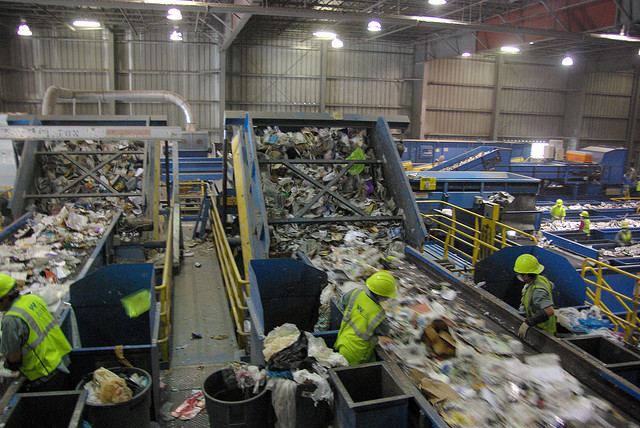
Local governments have been dealing with the new economic realities of recycling in recent months. Global commodity markets have more material than they can handle, and the price of oil is at an all-time low, so the value of recycled materials has dropped as well. Community demand for single-stream recycling makes contamination more likely which is costly for recyclers. As a result, recycling costs have become a drain on budgets for many jurisdictions with no end in sight.
Here are some ideas for adapting:
- Educate your residents. Find citizens who will champion the issue of contamination, which can increase the cost of curbside recycling. ICMA strategic partner Waste Management has a tool kit that local governments can use to kick off a compelling community campaign.
- Share services. There are many ways communities can work together regionally to reduce the costs of recycling through shared service agreements—such as setting up a joint authority like the one Central Virginia Waste Management Authority (CVWMA) established 25 years ago. Several sample agreements are in the Knowledge Network as well, like this one from King County and Redmond.
- Create media partnerships. Another way to work together across a region is to pool resources for media outreach. When all the communities across a region can leverage media resources, including social media, with a common message, the impact of the campaign is multiplied.
- Adjust goals. Because manufacturers are also facing higher costs of manufacturing and shipping, materials are shifting. Setting a target in tons or pounds for recycling may no longer reflect the success of your program. Instead, percentage of residents participating may be a more appropriate target. The Environmental Protection Agency (EPA) has many excellent resources for municipalities on ways to improve recycling programs.
- Advocate for a different model. In Europe, the model of “extended producer responsibility,” or EPR, shifts the costs of recycling from municipal governments onto manufacturers. Since packaging makes up almost a third of municipal solid waste in this country, according to this article in Next City, municipalities are beginning to push for similar legislation
- Apply for grants. Manufacturers have joined together to offer municipalities grants. Many counties, states, and regional councils of governments offer grants for recycling initiatives as well.
- Consider recycling best practices. Susan Robinson, federal public affairs director at Waste Management, suggests that municipalities review best practices. For example, studies consistently find that the most effective way to increase recycling is to implement convenient cart-based recycling. Variable garbage rates, or Pay-As-You-Throw sytems, have also proven effective. “Add in recycling mandates, disposal bans, and education,” Robinson adds, “and the result is a highly effective recycling program.” She points out that pricing signals, in particular, drive individual actions to recycle. Virtually every single city, state or country with high recycling rates also has high tipping fees, high disposal taxes, and mandatory recycling or some type of landfill bans.
ICMA would like to add additional resources on this topic to the Knowledge Network. If you have a recycling practice that’s working, or a model agreement that has been successful, share it.
New, Reduced Membership Dues
A new, reduced dues rate is available for CAOs/ACAOs, along with additional discounts for those in smaller communities, has been implemented. Learn more and be sure to join or renew today!
